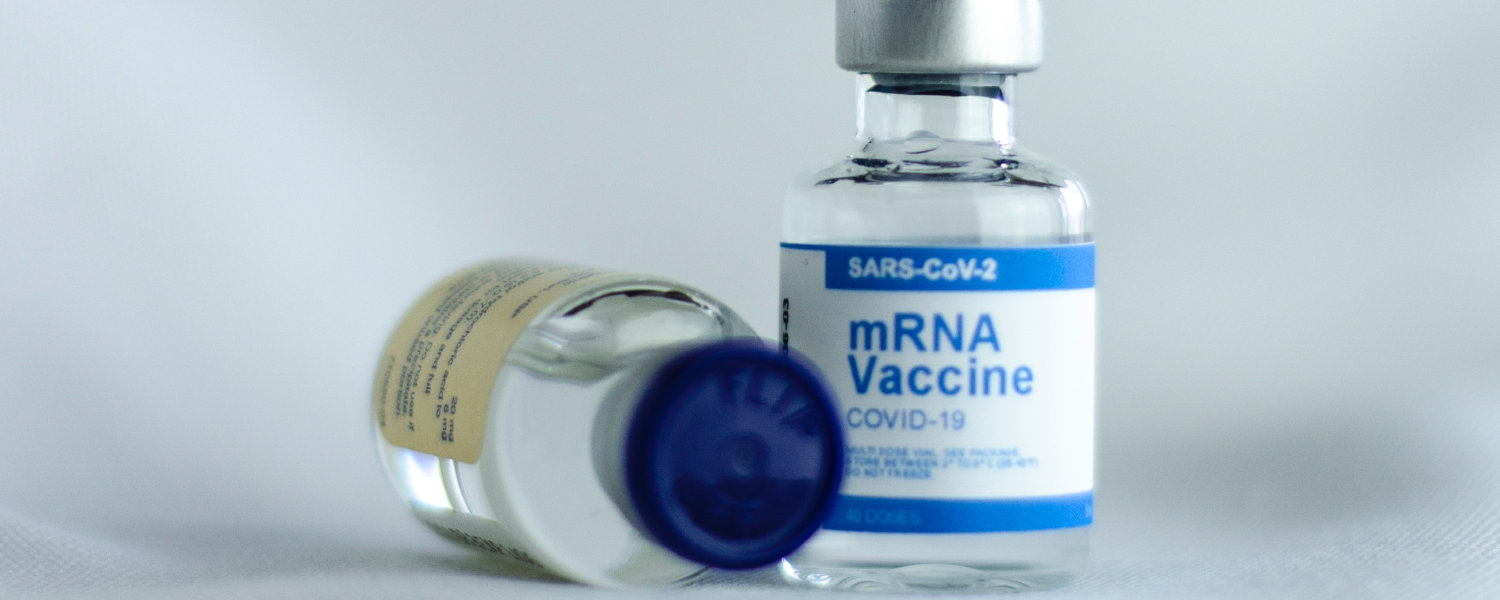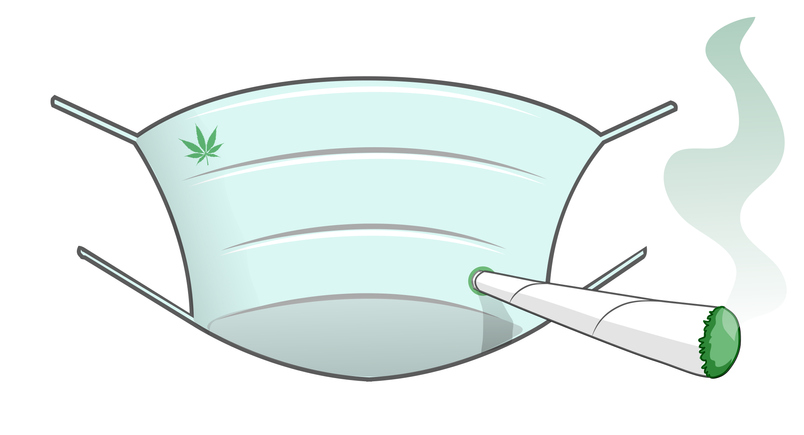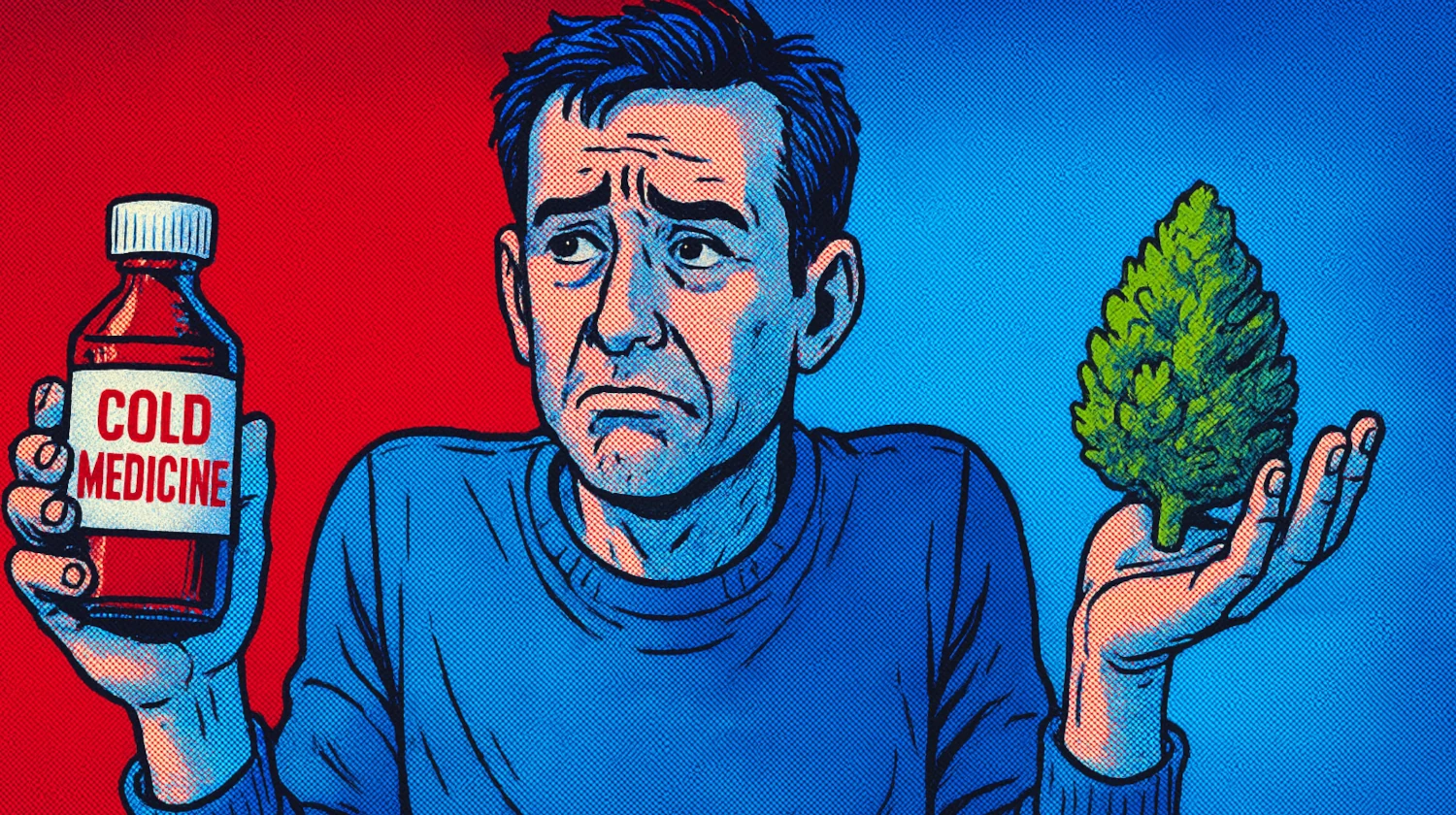The COVID-19 pandemic is a global health crisis caused by a novel coronavirus called SARS-CoV-2. First identified in Wuhan, China, at the end of 2019, the virus quickly spread to ignite a global pandemic.
COVID-19 primarily spreads through respiratory droplets when an infected person coughs, sneezes, talks, or breathes. It can also spread by touching contaminated surfaces and then touching the face.
The COVID-19 pandemic has resulted in millions of infections and deaths globally, putting immense strain on healthcare systems and leading to socioeconomic disruptions. The pandemic has also highlighted existing inequalities and disparities in healthcare access and outcomes. It continues to be an ongoing and evolving situation.
As of December 31st, 2023, over 13.64 billion COVID-19 vaccine doses have been administered, and over 67% of the global population are fully vaccinated. In the U.S., being fully vaccinated means an individual has received two doses of the Moderna or Pfizer vaccines or one dose of the Johnson & Johnson vaccine. The Centers for Disease Control reports that 676.7 million vaccines have been administered in the United States, with 230.6 million individuals being fully vaccinated and 56.4 million receiving an updated COVID-19 Bivalent booster dose.
Since the COVID-19 vaccine became available in 2021, many individuals have been concerned with the potential for medication and other health interactions. Because of the spread and potential severity of the COVID-19 virus, some people, such as healthcare workers, federal, state, county, or city employees, teachers, or those in other essential professions, may be required to get a COVID-19 vaccine. In addition, certain countries or businesses may also require people to be vaccinated against COVID-19 before entering.
With the importance of the vaccine, many individuals who use cannabis may be concerned about the potential interaction the COVID-19 vaccine may have with cannabis. Unfortunately, there is limited research on weed and the COVID-19 vaccine. However, you can still make an informed decision based on other people's experiences and the currently available research.
What is the COVID Vaccine?
Like other common vaccines, COVID-19 vaccines are designed to introduce part of a virus into the body's immune system to develop an immune response to recognize and fight off the full virus when the body is infected. In the case of the COVID-19 vaccine, scientists developed a vaccine with a spike protein, a part of the COVID-19 virus that causes cytokine storms within the immune system. Introducing this spike protein from the COVID-19 virus into the body gives the immune system a chance to recognize and develop an immune response to fight off a COVID-19 infection, which can result in less severe symptoms and a reduced risk of long-term effects.
COVID-19 vaccines can introduce the spike protein to the immune system in two ways. The first is by putting a part of the spike protein into the vaccine, and the second is by introducing a set of instructions to the immune cells on how to develop the spike proteins themselves.
For COVID-19, the vaccines currently available in the United States include Moderna (Spikevax), Pfizer (Comirnaty), Johnson & Johnson, and Novavax. Both Moderna and Pfizer are mRNA vaccines or messenger RNA vaccines. These mRNA vaccines fall into the second category described above, giving the immune cells instructions on creating their own spike proteins to help prevent severe symptoms of COVID-19.
Johnson & Johnson and Novavax are both examples of the first category of COVID-19 vaccines, which introduce parts of the virus to the body's immune system. These two vaccines can also be categorized into protein subunit and viral vector vaccines.
Vector vaccines like Johnson & Johnson work similarly to mRNA vaccines. They introduce a piece of the COVID-19 virus into the body using a viral vector, a modified version of another virus. This viral vector then instructs the body's cells to create COVID-19 spike proteins.
Protein subunit vaccines, such as Novavax, introduce a piece of the virus intended to stimulate your immune system to produce an immune response that will help fight the complete COVID-19 virus.
Does Weed Interact with Covid Vaccines?
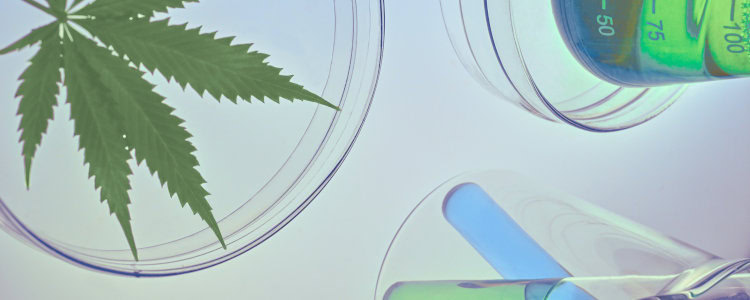
Experts have stated that no evidence supports any weed and COVID-19 vaccine interactions. Early-stage research has indicated that certain cannabinoids may even add protection against COVID-19 when paired with the vaccines.
In 2022, van Breemen et al. published a study in which two acid cannabinoids, CBGA and CBDA, were studied in a laboratory setting, specifically in a petri dish using human immune cell lines. The study demonstrated that these two cannabinoids could bind to the spike protein S1 subunit, virtually blocking COVID-19 from entering the cells.1
However, it is essential to note that this research is limited and cannot be applied to humans or used as evidence to support the use of cannabis as a treatment for or protection against COVID-19. More clinical research is necessary to determine the effectiveness and safety of cannabis as a potential treatment for or protection against COVID-19.
Individuals should only pursue the utilization of cannabis or any other substances to treat COVID-19 under the supervision of a healthcare professional. Self-medication with unproven treatments can be dangerous and may worsen symptoms or lead to other health complications.
Can I Use Weed if I Have Covid?
COVID-19 is a respiratory illness that can cause difficulty breathing, chest pain, sore throat, cough, fever, loss of taste or smell, headaches, and lead to more severe symptoms and health risks. While the symptoms of COVID-19 resolve without complication for many healthy individuals, the COVID-19 virus still attacks all vital organs within the body, including the brain, lungs, heart, kidneys, and liver.2 COVID-19 infection in any individual, whether they have mild or severe symptoms, can lead to chronic fatigue, shortness of breath, and cognitive dysfunction, such as memory loss or other cognitive impairments.
To date, no research has suggested that there is any direct interaction between weed and COVID-19 other than within a petri dish. Much of the concern around consuming cannabis while recovering from COVID-19 comes from users who combust flowers for smoking since there's evidence they may be more vulnerable to infection than those who don't. In addition, smoking in a social setting–including sharing joints, blunts, pipes, or bongs–can also put cannabis users at higher risk of COVID-19 infection.
Studies have also indicated that cannabis users are more likely to concurrently use tobacco products, such as nicotine vapes and cigarettes, which can lead to an increased risk of COVID-19 infection due to the carcinogens found in tobacco smoke.3
It is advised to avoid the inhalation of cannabis while positive for COVID-19. However, other methods of consumption, such as tinctures, edibles, and topicals, aren't believed to worsen the infection. And, at least anecdotally, many individuals report that continuing to use cannabis while positive for COVID-19 is beneficial.
One study from August of 2022 by Shover et al. collected data from 1831 patients with COVID-19, including 69 individuals who were cannabis users. From these sixty-nine cannabis users, researchers found they had lower levels of inflammatory markers and overall had better outcomes, including shorter hospital stays, less risk of admission to the ICU, and less need for mechanical ventilation.4
If individuals are no longer testing positive but are still experiencing respiratory symptoms of COVID-19, such as cough or shortness of breath, experts do not advise they begin inhaling cannabis until those symptoms are resolved.
It is unlikely that cannabinoids or methods of administration other than inhalation will negatively affect the COVID-19 infection. However, it is recommended that you speak with a healthcare professional if you have any concerns.
Safety Tips for Using Weed After a Covid Shot
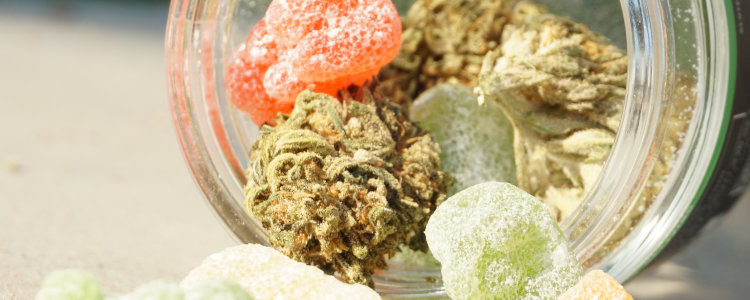
While vaccines are generally safe for most recipients, individuals should be aware of possible side effects after receiving the COVID-19 vaccine so they can recognize any unusual symptoms.
The most common side effects of the COVID-19 vaccine include pain or swelling at the injection site, fatigue, headache, muscle pain, chills, fever, and nausea. These side effects are typically mild and temporary. Remaining hydrated, avoiding overexertion, taking it easy, and allowing the body time to recover and adapt to the vaccine can help minimize adverse effects. If an individual experiences aches and pains after vaccination, over-the-counter pain relievers such as ibuprofen (Advil, Motrin) or acetaminophen (Tylenol) can be taken.
It's important to note that everyone's response to vaccines can vary, and not everyone will experience side effects. Severe reactions are rare but should be reported to healthcare professionals immediately.
Cannabis users are advised to refrain from the inhalation of cannabis as it may decrease the antibody response to the virus due to the impact smoke can have on the respiratory system. Other methods of cannabis consumption, such as tinctures, edibles, and topicals, have not demonstrated any potential for concern when combined with the COVID-19 vaccine.
If you are looking to consume particular cannabinoids and terpenes in hopes of boosting the immune system or potentially helping with lung function, there are compounds you should be on the lookout for. Alpha- and beta-pinene (α- and β-pinene), also found in pine needles and conifers, have demonstrated both anti-inflammatory and analgesic properties and bronchodilator effects. Other terpenes also exhibit anti-inflammatory, anti-viral, and analgesic properties, including β-caryophyllene, eucalyptol, citral, and more. Research also suggests that combining these terpenes with cannabinoids like CBD (known as the entourage effect) may enhance those properties.5
When it comes to cannabinoids, both CBD and THC have demonstrated antiviral properties, particularly against the COVID-19 virus.6 Still, this does not mean either cannabinoid has been approved as a treatment for or means of preventing COVID-19 infection. More clinical evidence is needed to determine the efficacy of CBD and THC against the COVID-19 virus in humans.
Weed and Covid Shots FAQ
Are there COVID vaccines that have a higher chance of interacting with THC?
To date, there is no evidence that any COVID-19 vaccine has a higher chance of negatively interacting with cannabinoids such as THC and CBD.
How long should I wait to use cannabis after getting vaccinated?
Individuals should consider waiting 15 to 30 minutes after getting vaccinated before consuming cannabis products, which should allow for any adverse side effects from the vaccine to appear.
Is CBD safe to use after the COVID vaccine?
Yes, CBD is generally considered to be safe to use after receiving the COVID-19 vaccine.
Can cannabis really prevent COVID?
While certain cannabinoids have demonstrated in-vitro effects protecting against COVID-19 infection in cells, no human clinical trials have confirmed that cannabinoids would effectively prevent a COVID-19 infection.
References
- van Breemen RB, Muchiri RN, Bates TA, et al. Cannabinoids Block Cellular Entry of SARS-CoV-2 and the Emerging Variants. Journal of Natural Products. 2022;85(1). doi:https://doi.org/10.1021/acs.jnatprod.1c00946 ↩︎
- Jain U. Effect of COVID-19 on the Organs. Cureus. 2020;12(8):e9540. Published 2020 Aug 3. doi:10.7759/cureus.9540 ↩︎
- Borgonhi EM, Volpatto VL, Ornell F, Rabelo-da-Ponte FD, Kessler FHP. Multiple clinical risks for cannabis users during the COVID-19 pandemic. Addiction Science & Clinical Practice. 2021;16(1). doi:https://doi.org/10.1186/s13722-021-00214-0 ↩︎
- Shover CM, Yan P, Jackson NJ, et al. Cannabis consumption is associated with lower COVID-19 severity among hospitalized patients: a retrospective cohort analysis. Journal of Cannabis Research. 2022;4(1). doi:https://doi.org/10.1186/s42238-022-00152-x ↩︎
- Hanuš LO, Hod Y. Terpenes/Terpenoids in Cannabis: Are They Important?. Medical Cannabis and Cannabinoids. 2020;3(1):25-60. doi:https://doi.org/10.1159/000509733 ↩︎
- Janecki M, Graczyk M, Lewandowska AA, Pawlak Ł. Anti-Inflammatory and Antiviral Effects of Cannabinoids in Inhibiting and Preventing SARS-CoV-2 Infection. Int J Mol Sci. 2022;23(8):4170. Published 2022 Apr 10. doi:10.3390/ijms23084170 ↩︎
The information in this article and any included images or charts are for educational purposes only. This information is neither a substitute for, nor does it replace, professional legal advice or medical advice, diagnosis, or treatment. If you have any concerns or questions about laws, regulations, or your health, you should always consult with an attorney, physician or other licensed professional.

